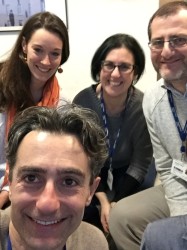BibTex format
@article{Hart:2013:10.1007/s11934-013-0352-7,
author = {Hart, ML and Neumayer, KMH and Vaegler, M and Daum, L and Amend, B and Sievert, KD and Di, Giovanni S and Kraushaar, U and Guenther, E and Stenzl, A and Aicher, WK},
doi = {10.1007/s11934-013-0352-7},
journal = {Curr Urol Rep},
pages = {476--487},
title = {Cell-based therapy for the deficient urinary sphincter.},
url = {http://dx.doi.org/10.1007/s11934-013-0352-7},
volume = {14},
year = {2013}
}

